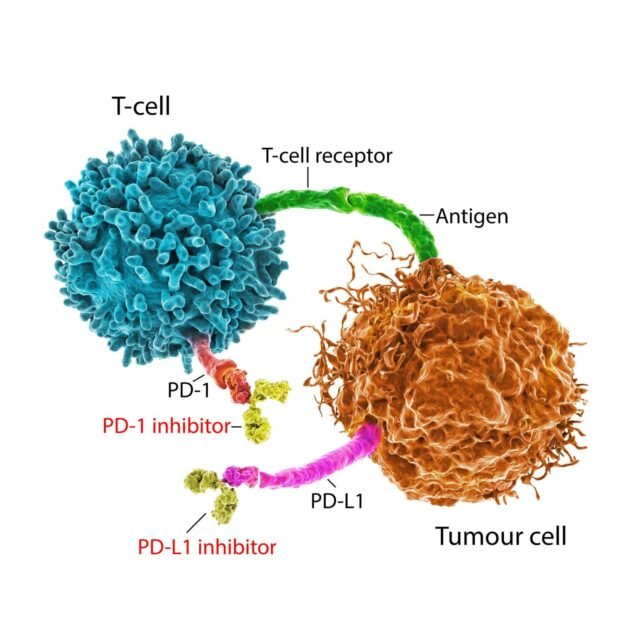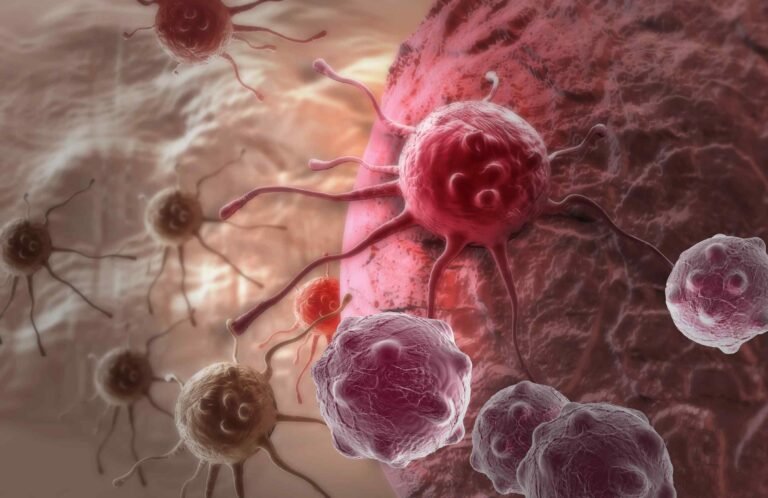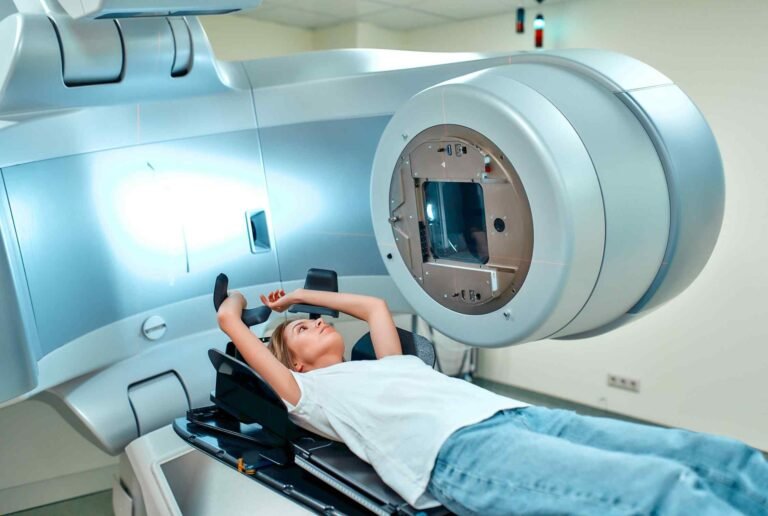What Is Immunotherapy?
Unlike other cancer treatments that directly target cancer cells, immunotherapy works by stimulating or enhancing the body’s natural defenses to recognize and attack cancer cells.
Immunotherapy represents a different perspective in cancer treatment, shifting the focus from directly killing cancer cells to engaging the immune system to do so. Similarly, the goal of immunotherapy is to utilize the power of the body’s immune response to recognize and eliminate cancer cells while sparing healthy tissues. In what follows, we’ll look at the most common types of immunotherapy, their advantages, and their challenges, ultimately discussing their long-term outlook on cancer treatment.
Types of Immunotherapy
Immunotherapy is a different method of cancer treatment in which the body’s immune system is utilized to carry out the treatment’s effects by recognizing, targeting, and destroying cancer cells.
Several key approaches have been developed for instituting immunotherapy, each offering different mechanisms of action and therapeutic potential.
Monoclonal Antibodies
Monoclonal antibodies are synthetic proteins designed to mimic the immune system’s natural antibodies, which are specialized proteins that target specific antigens on the outer layer of cancer cells.
These antibodies can be engineered to recognize and bind to these antigens that are expressed on the surface of cancer cells, thereby flagging them for destruction by the immune system or inhibiting their growth and proliferation.
Checkpoint Inhibitors
Checkpoint inhibitors are a class of immunotherapy drugs that work by blocking inhibitory pathways in the immune system, thereby unleashing the body’s natural immune response against cancer cells.
One of the most well-known checkpoint inhibitors targets a protein called PD-1 (programmed cell death protein 1) or its ligand PD-L1, which cancer cells use to evade detection by the immune system.
By blocking the PD-1/PD-L1 pathway, checkpoint inhibitors help “release the brakes” on the immune system, allowing it to mount a robust anti-cancer response.
Checkpoint inhibitors have shown remarkable success in treating a variety of cancers, including melanoma, lung cancer, and bladder cancer.
Cancer Vaccines
Cancer vaccines are a form of immunotherapy designed to stimulate the immune system to recognize and attack cancer cells.
Unlike traditional vaccines that prevent infectious diseases by priming the immune system to recognize specific pathogens, cancer vaccines aim to target and eliminate existing cancer cells.
Cancer vaccines may contain tumor-specific antigens or fragments of cancer cells, along with adjuvants or other immune-stimulating agents, to enhance the immune response.
CAR T-Cell Therapy
Finally, CAR T-cell therapy is a groundbreaking form of immunotherapy that involves genetically engineering a patient’s own T cells to recognize and attack cancer cells. This process begins by extracting T cells from the patient’s blood and modifying them to express chimeric antigen receptors (CARs) that target specific antigens on cancer cells.
CAR T-cell therapy has demonstrated remarkable success in treating certain types of blood cancers, such as leukemia and lymphoma, leading to durable remissions in some patients.

Advantages and Limitations
Immunotherapy is a unique approach in the field of cancer treatment and has several distinct advantages over conventional therapies. However, it also has to deal with some specific challenges in order for its efficacy and safety to be preserved.
The following are both advantages and limitations of immunotherapy:
Advantages of Immunotherapy
Potential for Long-term Cancer Control: One of the most significant advantages of immunotherapy is its potential to achieve durable and long-lasting responses in patients with advanced or metastatic cancers. Unlike traditional treatments such as chemotherapy, which may only provide temporary remissions, immunotherapy has demonstrated the ability to induce sustained responses, leading to prolonged periods of cancer control and improved survival rates.
Personalized Treatment Options: Immunotherapy offers the promise of personalized treatment approaches that correspond with the individual characteristics of each patient’s cancer. By harnessing the body’s own immune system to target specific molecular pathways or antigens expressed by cancer cells, immunotherapy can be customized to match the unique biology of each patient’s tumor. This personalized approach may enhance treatment efficacy while minimizing the risk of side effects associated with non-specific therapies.
Challenges of Immunotherapy
Adverse Effects: While immunotherapy can offer significant benefits, it is not without its drawbacks. Like all cancer treatments, immunotherapy can cause a range of adverse effects, including immune-related adverse events (irAEs) such as skin rash, diarrhea, and inflammation of the lungs or other organs. These side effects can vary in severity and may require prompt intervention to manage effectively. Additionally, while irAEs are typically reversible with appropriate treatment, they can sometimes be severe or life-threatening.
Mechanisms of Resistance: Another issue with the use of immunotherapy is the development of mechanisms of resistance, whereby cancer cells evade or circumvent the immune system’s attack.
Cancer cells can use various strategies to evade immune surveillance, such as downregulating antigen expression, upregulating immune checkpoint proteins, or recruiting immunosuppressive cells to the tumor microenvironment. Overcoming these resistance mechanisms remains a major hurdle in maximizing the effectiveness of immunotherapy and extending its benefits to a broader range of cancer patients. By leveraging its potential for long-term cancer control and personalized treatment options, immunotherapy offers new hope for patients facing advanced or treatment-resistant cancers.

Final Thoughts
Immunotherapy is a specialized therapy that can be utilized in several treatment approaches, each offering unique mechanisms of action and therapeutic potential.
From monoclonal antibodies and checkpoint inhibitors to cancer vaccines and CAR T-cell therapy, these innovative therapies hold tremendous promise for cancer treatment and improving outcomes for individuals in the quest for a cure.






